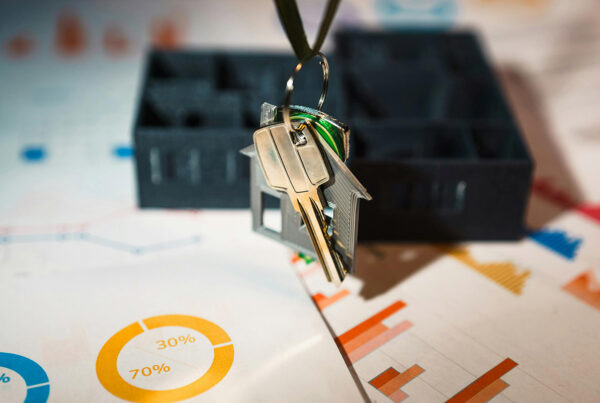You can download the clear and impartial guide to Property Auctions as compiled by RICS.
Why sell with
Sage & Co Auctions?
A guide to Selling
at Auction
You can download the Sage & Co Selling at Auction guide or view our most frequently asked queries below – if you have any further questions regarding the process, then please contact us.
What is a reserve price?
A reserve price is agreed between the seller and auctioneer prior to the auction commencing. This is the minimum price the lot can then be sold for. If bids do not reach that amount, then the lot will not be sold.
What is a guide price?
This is the price that will be advertised on the property, to give interested parties an indication of where the bids may start. The reserve price is set within 10% of the guide price.
How do I know if I am receiving interest on the property?
Our advanced auction technology allows us to inspect the number or interested parties, along with registered bidders. You will receive weekly updates on these statistics and the number of viewings, along with feedback if necessary. You will also have a direct contact number for the member of staff handling your property sale, who will be on hand to answer any queries you may have.
How much will it cost to sell my property at auction?
As a new company, we want to offer the best possible value to our clients. We work on a sliding scale fee system and will consider a number of factors before offering you a suitable auction package. We hope to offer some exciting deals for sellers in the coming months.
Do I need to carry out viewings on the property?
No, we as the auctioneers will handle all permissible viewings. Ideally, we would require a key to carry these out, but if not, we would need access to be arranged on the viewing dates. This would be discussed prior to any arrangements being made.We will also look to provide a virtual tour on the property, which is a fantastic addition to the marketing, attracting buyers from further afield.
How long does completion take?
Completion is generally set for 28 days from the exchange of contracts (which happens on the day of auction). However, this can be amended to suit your circumstances. You will need to instruct your solicitor prior to the legal pack being prepared, and they can update the special conditions of sale for you.
Online Auctions
Buying guide
You can download the Sage & Co online Auctions Buying guide or view the process below – if you have any further questions or queries regarding the process, then please contact us.
Sage & Co Online Auctions is a new, innovative and pioneering platform for buying and selling property.
It provides all the benefits synonymous with traditional auctions, including: speed and certainty of sale, transparency and zero risk of gazumping or double-selling, but with the added advantage of being able to bid pressure-free from the comfort of your own home or office via desktop, tablet or mobile phone.
Registration
A Straight forward process from start to finish
In order to bid at Sage & Co Online Auctions you will first need to create an account by providing your contact details. You will be required to verify your email address, by clicking an activation link that we’ll send to you via email. Once you’ve created an account you can ‘watch’ lots that you’re interested in (you’ll be kept up-to-date throughout the auction cycle), as well as gain access to the legal packs. In order to place a bid on a lot you will need to complete the bidder registration steps, as detailed below.
Please note, the first time you register to bid you will also be asked to verify your mobile number and upload copies of your photo ID (e.g. driver’s licence or passport) and recent proof of address (dated within the last 3 months). This is required so we can easily keep in touch and helps us confirm your identity in the event of you purchasing a lot.
Accept Terms
Please ensure you read, understand and accept the terms & conditions.
You will be asked to read and accept our Online Auction Terms and Conditions. Additionally, there may be specific documentation relating to the sale of the property you’re registering to bid on that will need to be read and accepted before you are able to bid. Once accepted, you will receive a copy of the document(s) via email for your own records.
Specify your Solicitor
Provide details of your chosen Solicitor
You will be asked to provide details of your chosen solicitor, so that in the event of you winning the lot we can initiate the necessary legal proceedings between yours and the vendor’s solicitors.
AML Check
Complete an online Anti-Money Laundering Check
Sage & Co are required by law to carry out an online anti-money laundering check on all persons wishing to bid. You will be asked to provide information to verify your identity, including your date of birth, addresses for the last 3 years and at least one of passport, driving licence or national insurance number. This check leaves a ‘soft footprint’ on your credit report (but should not affect your credit rating).
Bidder Security
Register your Credit or Debit card for the bidder security.
In order to bid online you will be required to register a credit or debit card for the bidder security deposit. We use Stripe who provide a secure, online card registration facility, and they will attempt to place a ‘hold on funds’ on your account for the bidder security amount (often known as a ‘payment shadow’ as no money is takenat this stage). The bidder security amount will be clearly displayed when registering your card.On the fall of the electronic gavel, the winning bidder’s card will be automatically debited for the bidder security amount, whilst all the unsuccessful bidder’s cards will have their shadow payments released (this can take several days depending on the card provider).
For more information about this process please read the detailed explanation at the end of the process.
Auctioneer Review
Final Step – Auctioneer Review
Once you have completed the bidder registration steps,Sage & Co will review your registration to bid. We may contact you to obtain some additional information,so that we can electronically verify your identity with a credit reference agency –this is a quick and simple process which leaves a ‘soft footprint’ and doesn’t affect your credit score. You will be notified by email as soon as you have been approved to bid.
Due Diligence
Recommended Due Diligence Before Bidding.
In general terms, you are strongly advised to view the property and take professional advice as to its condition and suitability. You should also ensure that you thoroughly read and understand the legal pack and any other associated documentation available online, and take proper legal advice accordingly. Finally, understand the contract you are entering into and the financial commitment that you will be liable for should you be the successful purchaser.
Guides & Reserves
Understand the Guide Price & Reserve Price
What is a Guide Price?
A Guide Price is an indication as to where the Reserve is currently set.It is not necessarily what the auctioneer expects to sellthe lot for, and should not be taken as a valuation or estimate of sale price.The reserve will not exceed the Guide Price bymore than 10% if it is a single figure Guide price, and if a Guide Price range is quoted, the Reserve will fall within that range.
What is a Reserve Price?
The Reserve is the minimum figure that the Auctioneer is currently authorised by the vendor to sell the property for. Please note that Reserve is liable to change throughout the course of marketing. The Auctioneer reserves the right to lower the Reserve during the auction to a level that matches the existing highest bid. In the event that there were nofurther bids, the bidder who placed that ‘highest bid’ will be declared the purchaser at the end of the auction process.
Bidding Explained
Stress-free Bidding from the comfort of your own home
When the auction opens, you will be able to place bids in line with the pre-determined bid increment levels, using the bid increase (+) and decrease (–) buttons provided. Having set your preferred bid amount and clicking the ‘Place Bid’ button, you will be asked to confirm your bid at which point it will be placed.
Every time you submit a bid you will be clearly shown whether your bid was successful, and a full list of all bids is displayed on-screen at all times.
Maximum (proxy) bids
You are not restricted to placing a bid at the minimum bid amount, but can instead increase your bid and place a maximum (proxy) bid in the system. By setting a maximum bid, the system will automatically bid on your behalf to maintain your position as the highest bidder, up to your maximum bid amount. If you are outbid, you will be notified via email so you can opt to increase your bid if you so choose.
How proxy bids work with the reserve price
Virtually every lot is sold subject to a reserve price (the minimum price that the auctioneer is authorised to sell for on the day). When you submit a maximum bid, the actual bid placed by the system will depend on where the reserve price is in relation to your maximum bid, as defined below.
If your maximum bid is below the reserve price
- The system will place an immediate bid at your maximum bid amount.
If your maximum bid is at or above the reserve price
- The system will automatically increase your bid to be at the reserve, and will only bid again on your behalf if you are subsequently outbid by another bidder (up to your maximum bid amount).
- If another bidder has already placed the same maximum bid or higher, they will be the highest bidder at your max bid level and the system will notify you via email so you can place another bid.
NB: Your maximum bid is kept completely confidential –it’s presence or amount are not disclosed to the auctioneer, vendor or any other bidder.
Bidding Example
Bidding example:
- The current bid on a lot is £90,000. The reserve price has been set at £100,000 (not disclosed).
- Tom wants to bid. The minimum bid amount is £91,000 but Tom decides to place a maximum bid of £97,000. This is below the reserve price, so the system places a bid for Tom at his maximum bid amount and he becomes the highest bidder at £97,000.
- Jane logs on to bid. The minimum bid amount is £98,000 but Jane places a maximum bid of £105,000. The system automatically increases Jane’s bid to meet the reserve and she is now the highest bidder at £100,000. However, Jane still has a proxy bid of £105,000 “in the system” which will automatically bid on her behalf if anyone else places a bid.
- Tom is notified that he has been outbid. If no more bids are placed Jane would win the lot for £100,000.
- Tom places a bid of £101,000, and Jane’s proxy bid instantaneously outbids him at £102,000 as this is the lowest bid required to make her the highest bidder.
- Tom then places a maximum bid of £105,000. The current bid jumps to £105,000 with Jane as the highest bidder as she placed a proxy bid at that amount before Tom did.
- Tom then places a bid at £106,000and wins the lot as there are no other bids and it is above reserve.
Bidding Extensions
The Bidding Extension Window Eliminates ‘Bid Sniping’
Unlike eBay, bid sniping is impossible on our online auction platform. All auctions will close as per their advertised ‘Auction End Date’, however if a bid is placed within the final 60 seconds of the auction’s scheduled end time the auction will be extended by an additional 60 seconds –known as the ‘bidding extension window’.
If a bid is placed in the bidding extension window, the countdown clock will immediately reset to 60 seconds again, and the auction will only finish when an entire 60 second bidding extension window passes without any further bids being placed, i.e. 60 seconds of ‘bidding silence’. This ensures every bidder has a fair and equal opportunity to place another bid.
Do not leave your bid to the last few seconds. It gives you no advantage, you risk your bid not being received by the server in time and you could lose the lot to another bidder.
Bidding is based on the server time and not your device which could be up to 2 seconds behind the server.
Fall of the Gavel
Legal position when you’ve won the auction
We offer property for sale by immediate, unconditional contract. This means that the fall of the electronic gavel constitutes an exchange of contracts between the buyer and seller. Both parties are legally bound to complete the transaction –usually within 20 working days following the close of the auction but this will be confirmed within the legal documentation.
Post Auction
We’ll guide you through to completion
If you are the successful purchaser,we’ll be in touch following the online auction to discuss the next steps. The system will take the bidder security amount from your registered credit or debit card (all under bidders will have their hold on funds released);the contract will then be signed on your behalf with copies being sent to both your solicitor and the seller’s solicitor.
For more information contact us.
Payments Explained
How the payment registration works
In order to bid online you are required to submit details of a credit or debit card. When you register your card, we will be placing a hold on funds on your credit card(or bank account if you use a debit card), to the value of the bidder security deposit.This means that the amount we’re holding willaffect the available amount you have to spend on your card, as the amount will be ring-fenced and you will not be able to spend it until the hold has been released.If you are the winning bidder then the amount will be taken in full fromyour registered credit card or bank account immediately following the close of the auction. If you are not a winning bidder then the hold on funds will be released from your card, but be aware that it can take anything from a few hours up to several days for the hold to be released (dependent on the card issuer).If in doubt, contact your card issuer. Please be aware that you will not have access to the funds until the hold has been released.
Example Payments
Two example payment registrations are shown below:
Scenario 1:
- Tom has a credit card with an overall limit of £8,000, and a current available balance of £7,000
- Tom registers to bid on an online auction lot which has a ‘buyer’s premium’ of £5,000 applicable
- Tom registers his credit card–a hold on funds is placed on the card to the value of £5,000
- The available balance to spend on the card is now £2,000
- Tom goes out shopping and buys a new laptop for £1,500
- The available balance on Tom’s card is now only £500
- Tom bids on the online auction but is unsuccessful and doesn’t win.
- The auction closes and the system automatically instructs Stripe to release the hold on funds from Tom’s card
- The available balance on Tom’s card will revert to £7,000 once the ‘release’ has taken place
Scenario 2:
- Jane has a debit card for a bank account with a current balance of £5,250
- Jane registers to bid on an online auction lot which has a ‘buyer’s premium’ of £5,000 applicable
- Jane registers her debit card –a hold on funds is placed on Jane’s bank account, to the value of £5,000
- The available balance in Jane’s bank account is now only £250
- Jane goes shopping and buys a new mobile phone for £300, pushing her £50 into an overdraft
- Jane bids on the online auction and wins the auction. The auction closes and £5,000is immediately taken from her bank account
- Jane remains £50 overdrawn









